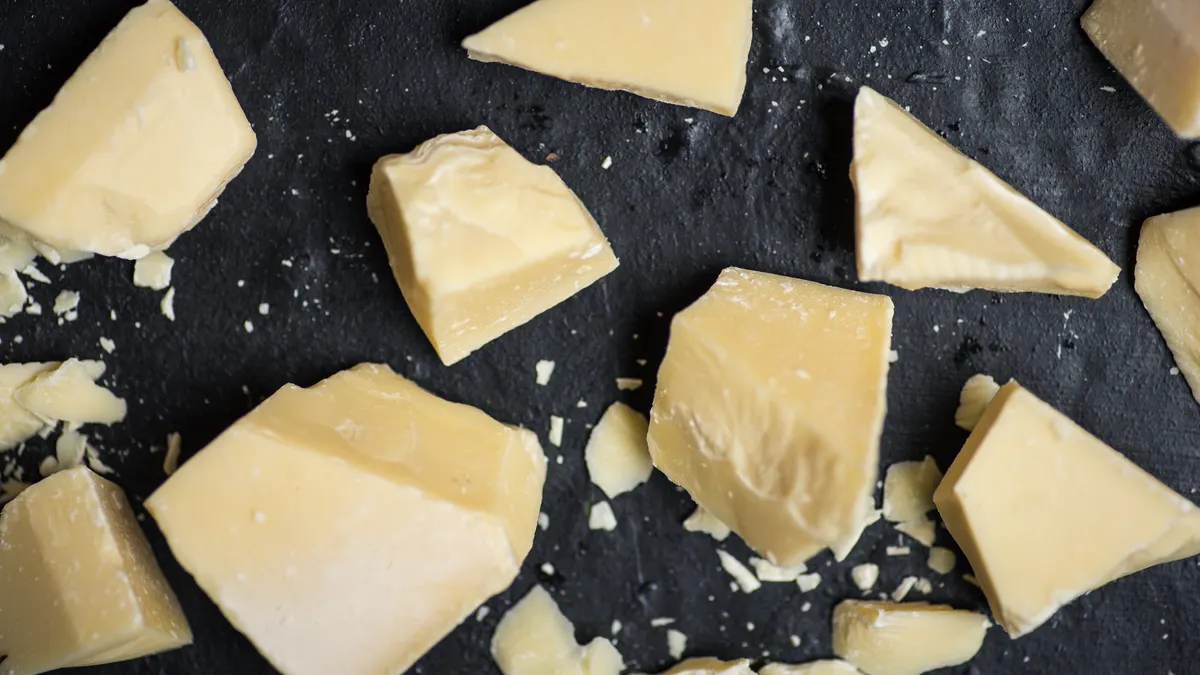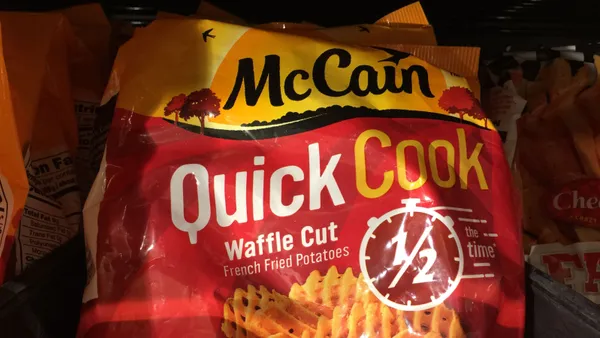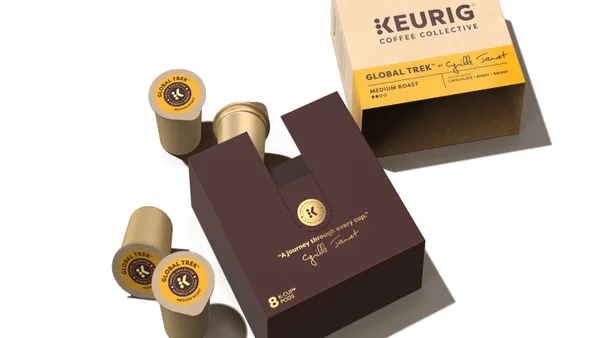Dive Brief:
- Food tech startup Celleste Bio said it has become the first to produce cell-cultured cocoa butter, a milestone for the industry as it struggles with high chocolate prices.
- Celleste's lab-grown cocoa butter is "bio-identical to cocoa butter extracted from the bean," the company said in a statement, and has the same texture and sensory qualities as premium chocolate.
- Celleste has raised $15 million so far, including from snacking giant Mondelēz International, which has acted as a strategy and design partner. The startup is building a pilot facility to scale production of its sustainable chocolate ingredients.
Dive Insight:
Elevated cocoa costs have pushed Hershey and other major sweets companies to raise chocolate prices and consider potential substitutes or lab-grown alternatives.
After reaching a record high in late 2024, chocolate prices are now dropping as supply recovers due to improved weather in Africa and expanded production in Ecuador. However, climate change, crop disease and aging trees continue to present long-term risks to supply, according to the International Cocoa Organization.
To provide some sense of stability, more companies are offering alternatives made from ingredients like wheat or soy, which can be used to replace a certain percentage of cocoa in the chocolate-making process. Ardent Mills, a joint venture between Cargill, Conagra and CHS, released a wheat-based solution for the industrial baking sector that can replace up to 25% of cocoa powder in cakes, brownies and cookies.
Celleste aims to go further by offering a replacement that is identical to chocolate both chemically and functionally. The technology is not meant to replace traditional farming, but act as an "insurance policy" against future disruption, Howard Yano Shapiro, retired chief agriculture officer at Mars, said in a statement.
Cocoa butter is the primary fat used in making chocolate and is essential to creating the richness and melt-in-your-mouth feeling of the sweet. Chocolate manufacturers spend about $16 billion on cocoa ingredients a year, Celleste said, with cocoa butter making up nearly half of that total.
"Cocoa butter is the single most important, expensive and resource intensive ingredient in chocolate and if we've learned anything from last year, it's that solutions for crop supplementation are crucial," Yano Shapiro said.
Companies have looked to expand cocoa production through investments or their own internal research. Nestlé, for example, said it developed a process to utilize up to 30% more of the cocoa fruit to produce chocolate, cutting down on waste.














